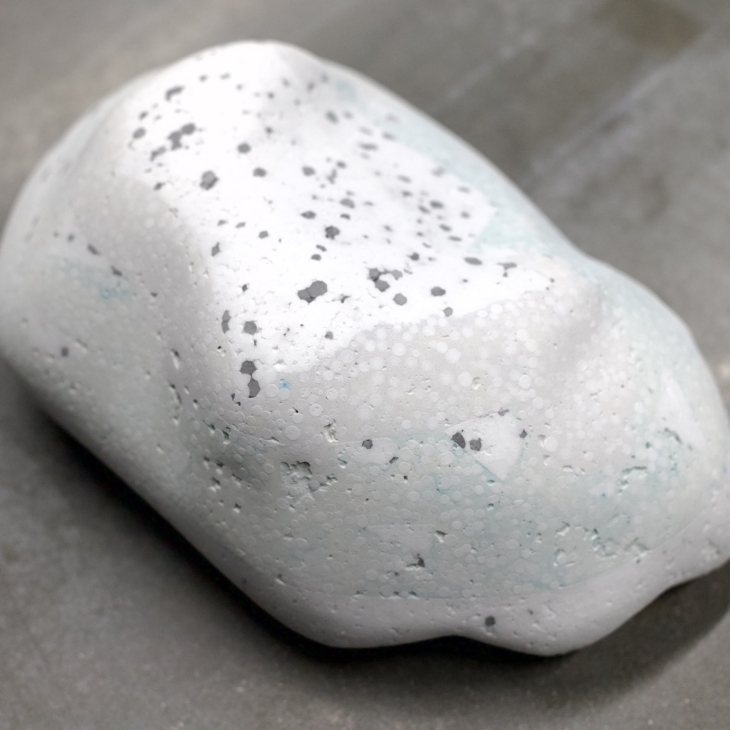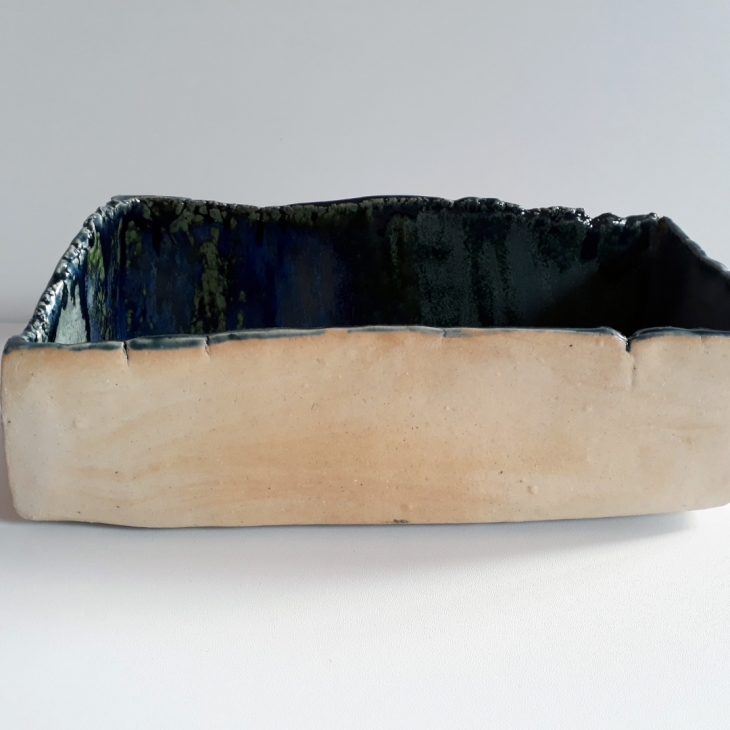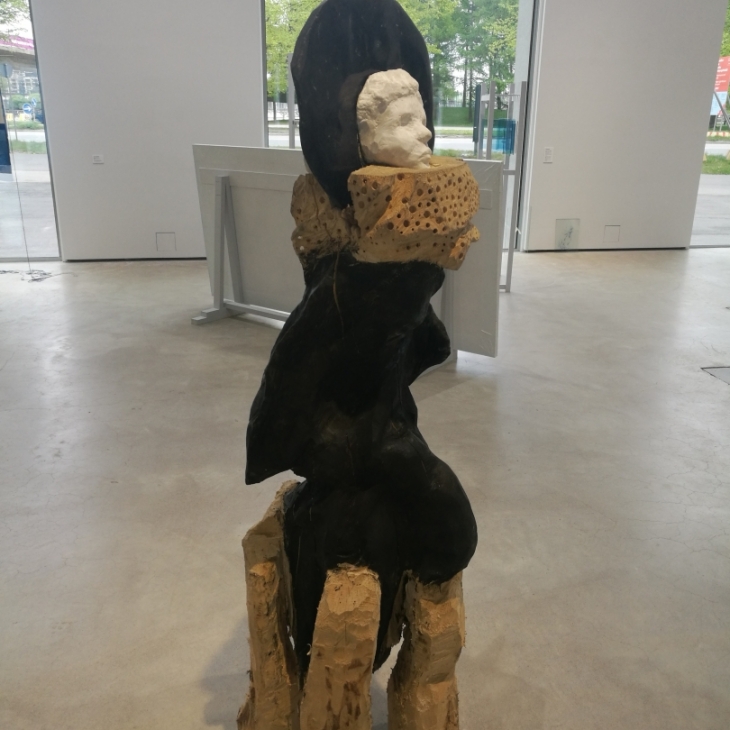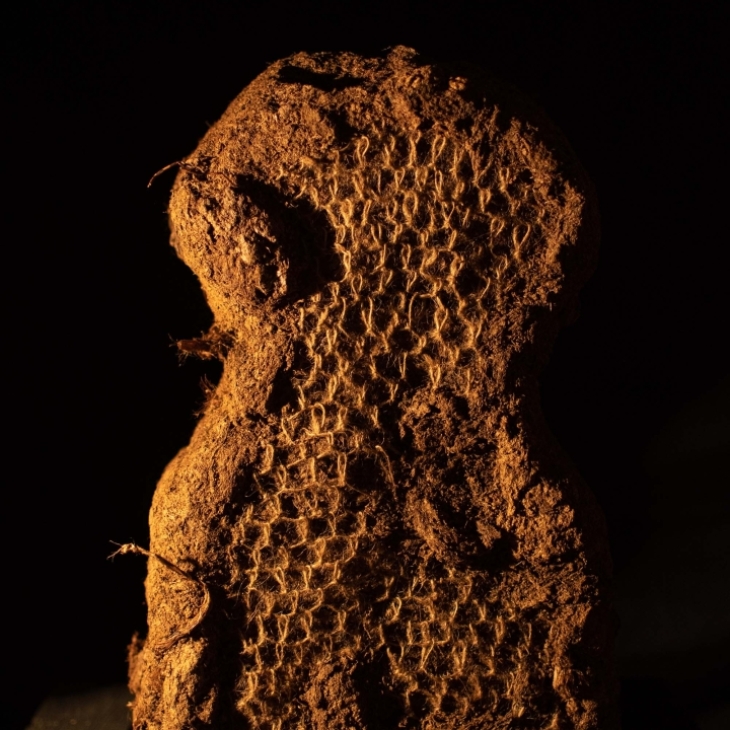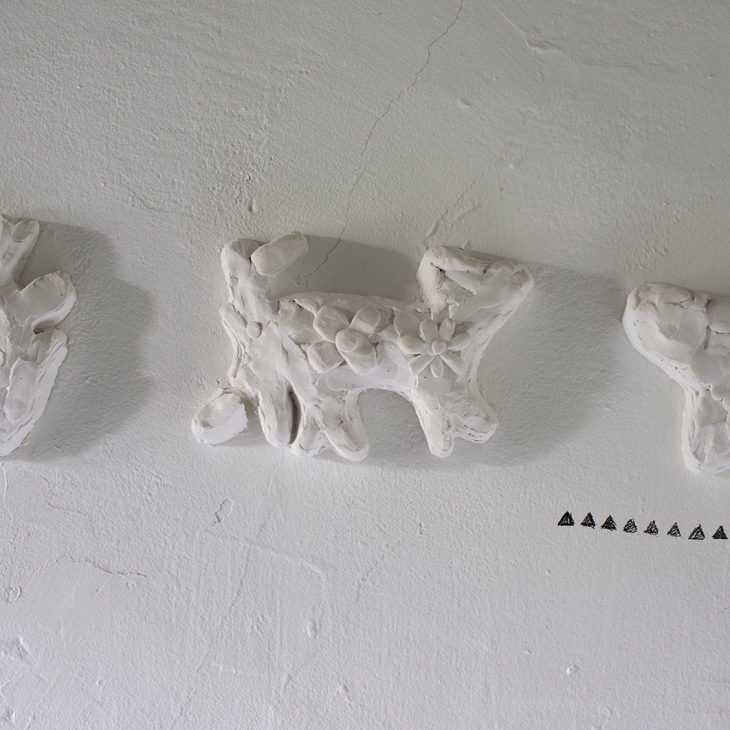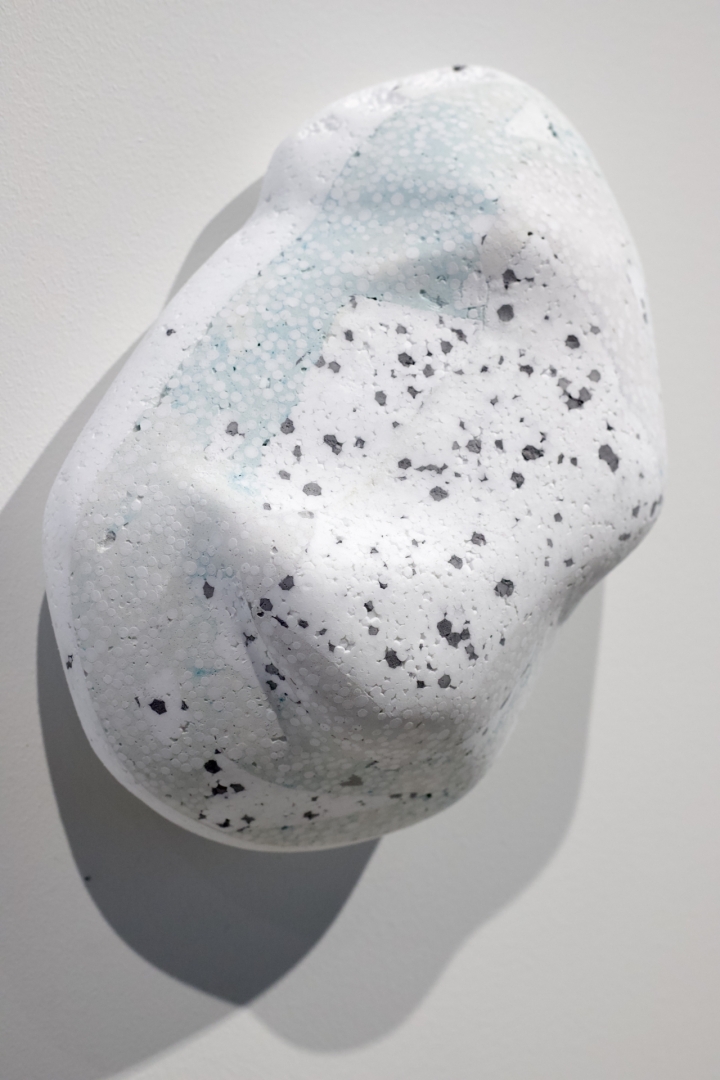Plastea telluris II, 2025
recycled styrofoam, building-filler and pigment
For this work, I envisioned the soft, refreshing tones of mint ice cream, translating its color and texture into the material form. The work should be categorized under the Other section, but I wanted to include the three-dimensional measurements. This work can also be displayed on the wall, engaging the viewer with its tactile, relief-like presence. The name Plastea refers to molding and plastic. Plastea telluris: the plastic of the earth. Polystyrene is generally thought of as a difficult material to shape—crumbly, static-charged, and prone to sticking everywhere—so the hot wire cutter is often considered the only tool for achieving clean forms. Through extensive material experimentation, however, I discovered that expanded polystyrene responds beautifully to sanding, provided the process is approached in careful stages. I begin with rough shaping using a hand saw, guided by my initial sketches. This is followed by coarse sanding with a power sander, and finally, fine sanding in gradual steps with increasingly smooth sandpapers. The result is a surface that evokes stone, marble, or other rock-like substances—an unfamiliar transformation of a material rarely seen in this way. The mimetic effect is further heightened by the use of filler and pigment, which not only enhance the illusion but also reintroduce a painterly dimension to the work.



